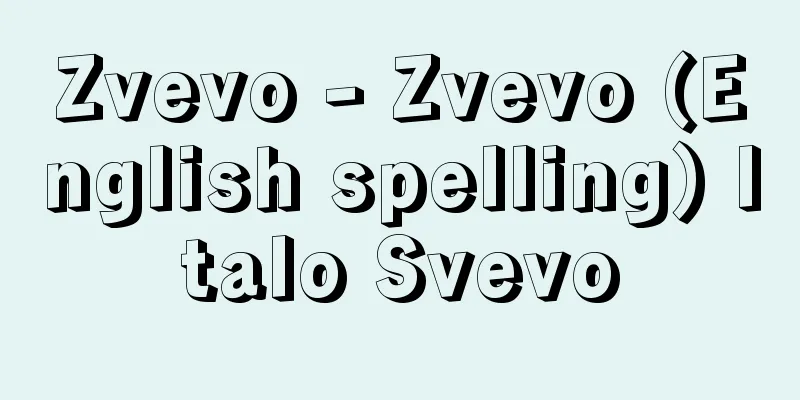Zvevo - Zvevo (English spelling) Italo Svevo

|
Italian author. His real name was Ettore Schmitz. He was born on December 19th in Trieste, an ancient commercial city under the Austro-Hungarian Empire. His father was a German merchant and his mother was from Trieste, both of Jewish descent. After receiving his secondary education in Würzburg, Germany, he entered the Higher Commercial School in Trieste. In 1880, due to his family's financial difficulties, he got a job at a bank and worked there for 20 years. During that time, he developed his literary style, and was particularly familiar with Schopenhauer's philosophy and French realist novels. In 1892, he self-published the novel "A Life" under the pen name Italo Svebo, which means "Italian Swabian" after his bloodline, but it did not attract any attention. Six years later, he self-published "Old Age," but it did not receive any criticism, so he gave up on his path as a writer. In 1896, he married his wife Livia, and joined a company run by her father, and he was forced to live the life of a businessman for the rest of his life. In 1905, he met J. Joyce, who was an English teacher in Trieste, and they became close friends. Joyce's encouragement and the works of Freud that he came across while traveling around Europe on business gave Svebo new strength to write, and in 1923, a quarter century after his previous work, he self-published his novel, The Consciousness of Zeno. At the end of 1925, he was discovered by the keen eye of the poet E. Montale and highly praised, and the following year, through Joyce's introduction, B. Crémieux and V. Larbaud, both experts in Italian literature, praised him as the most noteworthy contemporary writer, and the name of Svebo, a writer who had long been undeserved of recognition, suddenly spread throughout Europe. However, on September 13, 1928, he died unexpectedly in a car accident. "Zeno's Consciousness" was a pioneering work that, with its tense psychoanalytic method and reliance on the irrational and the unconscious, pointed the way to new developments in 20th-century literature already during the interwar period. In addition to the trilogy of novels, he published two posthumous collections of short stories. [Hiroto Koga] [Reference] |Source: Shogakukan Encyclopedia Nipponica About Encyclopedia Nipponica Information | Legend |
|
イタリアの作家。本名はエットレ・シュミッツ。12月19日、オーストリア・ハンガリー帝国治下の、古くからの商業都市トリエステに生まれる。父はドイツ人の商人で、母はトリエステの人、ともにユダヤ系であった。ドイツのビュルツブルクで中等教育を受けたのち、トリエステの高等商業学校に入学。1880年、家の窮状ゆえに銀行に就職し、20年間勤める。その間に文学形成を果たし、とくにショーペンハウアーの哲学とフランス写実主義の小説に親しんだ。92年、自分の血筋「イタリアのスワビア人」を意味するイータロ・ズベーボという筆名で、小説『ある人生』を自費出版したが、まったく注目されなかった。6年後に自費出版した『老年』も、なんらの批評を得ることなく終わったため、作家の道を断念。96年に結婚した妻リービアの父が経営する企業に入り、終生、実業家としての生活を送らざるをえなかった。 1905年、トリエステで英語の教師をしていたJ・ジョイスと知り合い、親しい交わりを結ぶ。ジョイスの励ましと、商用でヨーロッパ各地を巡るうちに接したフロイトの著作が、創作へ向かう新たな力をズベーボに与え、前作から四半世紀を経た23年、やはり自費出版で小説『ゼーノの意識』を刊行。25年末、詩人E・モンターレの炯眼(けいがん)にみいだされて高い評価を受け、翌年にはジョイスの紹介を介して、イタリア文学通のB・クレミューとV・ラルボーが、もっとも注目すべき現代作家として彼を称賛するに及んで、長く不当な不遇をかこった作家ズベーボの名は一挙にヨーロッパに広まった。しかし、28年9月13日、自動車事故で不慮の死を遂げた。『ゼーノの意識』は、緊張した心理分析の手法と、非合理と無意識への依存とによって、早くも両大戦間に、20世紀文学の新たな展開の方向を示した先駆的な作品であった。小説三部作のほか、没後出版の2冊の短編集がある。 [古賀弘人] [参照項目] |出典 小学館 日本大百科全書(ニッポニカ)日本大百科全書(ニッポニカ)について 情報 | 凡例 |
<<: Speranskii, Mikhail Mikhailovich
Recommend
Finger marriage - Shifukukon
An engagement arranged between parents with an unb...
Alternate messenger - Koutaishi
〘Noun〙 Under the Ritsuryo system, when a local off...
Yoshie Fujiwara
Tenor singer. Born on December 5, 1898 in Shimono...
The cult of the moi (English: Lecultedumoi)
…In 1883, he went to Paris to study law, while at...
Nagamasa Kizawa
Year of death: 17 March 1542 (2 April 1542) Year o...
Brachydanio albolineatus (English spelling)
...Because their mouths are small, there is no pr...
'Abd al-Raḥmān (Afghanistan) (English spelling) Abdal Rahman
… [Tomoaki Fujii]. … *Some of the terminology tha...
Haseokukyo Soshi
This picture scroll depicts the story of Ki Haseo,...
Piddock (piddock shell) - Piddock (English spelling)
A bivalve mollusca of the family Psammidae. The sh...
Deposit note - Azkari Tegata
1 Same as “Depositary Receipts.” 2. Bills issued b...
Dolphin (Dolphin) - Delphinus
Abbreviation: Del. A small constellation facing th...
governer
…The first islands in the Atlantic were discovere...
Renal tubule
… The external shape also differs depending on th...
Yellow rhododendron - Yellow rhododendron
An evergreen small shrub of the Ericaceae family ...
Horn - horn (English spelling)
A general term for flutes made from the conical t...
![Kawayu [Hot spring] - Kawayu](/upload/images/67cb470f55fe6.webp)





![Aizankei [Hot Springs] - Aizankei](/upload/images/67caced555c8e.webp)


